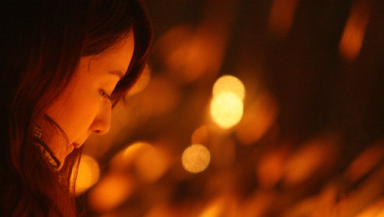
More people than ever are identifying themselves as having 'no religion' according to new research.
Two surveys conducted by YouGov reveal that out of 8,455 British adults polled, 38 per cent - 3,199 in total - said they have 'no religion'.
This is most notable in younger generations, with almost half (48 per cent) of those under 30 identifying themselves as having no religion, while only 27 per cent of over 60s said the same.
Furthermore, for the first time ever, 'no religion' has become the identity of the absolute majority of those aged 18 and 19.
It is important to note that 'no religion' is not synonymous with 'atheist'.
Many of those surveyed who do not identify with a religion specify that they do not entirely reject the idea of God, but that they choose to reject the label of being 'religious'.
Just under three quarters (74 per cent) of 'no religions' say they are indifferent to religion, while 16 per cent say they believe in God.
In fact, only 13 per cent of these 'no religions' are identified as being 'hostile to religion'.
A study undertaken by Professor Linda Woodhead of Lancaster University gives this term to those who label themselves as having no religion, are atheist, and believe that the both the Church of England and the Roman Catholic Church are "a negative force in society".
'Hostile nones' are not identified as being usually of a certain age group, and there is no evidence to suggest there has been a large increase in growth.
Professor Woodhead attributes the increase in those who consider themselves to be of 'no religion' to the fact that older religious people are not passing on their faith to the younger generations, and are therefore being slowly replaced by unaffiliated younger people.
"The steady and relentless growth of 'no religion' within our lifetime is a remarkable social shift. Support for the Christian churches, particularly the established churches of England and Scotland is draining away," she says.
"No religion is the new establishment. While it's always possible that this trend could get reversed, it gets less and less likely as the chain of memory connecting young people to religion stretched and snaps."
The study also notes that it is likely that some adults who considered themselves 'Christian' at the start of the century now identify as 'no religion', and that affiliation with the Church of England has declined far more than the Roman Catholic Church, most probably as a result of immigration.













